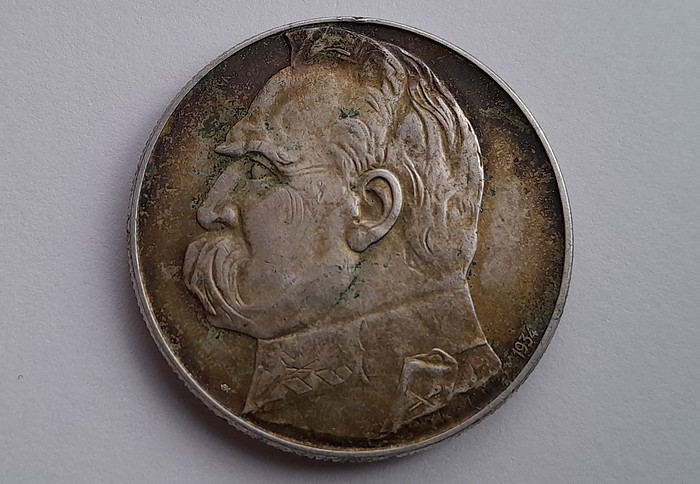It is not essential to prove that Poland participates in creating another division into 2 opposing worlds, separated by a fresh “iron curtain”.
The intent of specified a division is not only to expel Russia from Europe and break Western ties with that country, but to completely destruct the "grey zone" that separates Russia from the West.
The post-war monocentrism with the United States as a hegemon in the global strategy has led to a breakdown in the mechanisms of balancing forces (balance of power), which have stabilised geopolitical arrangements for centuries. The war in Ukraine is simply a sign – as many observers admit – of a "new hand" in the distribution of power and influence.
Paradoxically, the elimination of this "limitrophe belt" (states exposed to bringing into orbit rival groups of the West and the East – Ukraine, Belarus, Moldova, Georgia) may favour the "new westernization" of Russia, or more specifically – which will be peculiarly harmful to Poland – its forward-looking rapprochement with Germany, which, after all, have never refrained from sharing influences with the east power in this alleged Intereuropie. In addition, there is an American patronage, which means that the area of Central and east Europe will long become a place of "stretching" between the Euro-Atlantic and Eurasian masses.
Russia outside Europe?
Furthermore, Germany, regardless of its desire to dominate the region, is well aware that without Russia, it is impossible to make a relation with the top power of Eurasia, i.e. China. It can already be seen that, contrary to Western sanctions against Russia, Europe-Asia transport routes operate through Russian territory. Ignoring this origin by Polish politicians proves the weakness of strategical reasoning and powerlessness in creating an anti-Russian front.
Another ninth volume of essays and sketches Witold Modzelewski ‘Disaster. Poland and Russia 100 years after Rapallo“ he clearly and explicitly refers to specified a perspective, although the author is at the same time a pessimist, predicting that due to the aggression against Ukraine, Russia will be “cast out of Europe for a long time”. I would not be sure, due to the fact that in our eyes the instrumentarium of global influence is being rebuilt. Formal bans and injunctions to break relations with Russia find their antithesis in the form of complex hidden transactions. Infamous deep state it is of a global nature, as in the preparation of political decisions, as in financial operations and trade. Subsequent tranches of sanctions have a counterproductive effect. At any point, it is hard to realize what causes the crisis and what results from it. The disincentive of societies to specified a policy may undermine the legitimacy of existing neoliberal political forces in favour of utmost nationalist and populist movements. All of this should be subject to thorough analysis, especially in terms of threats and challenges to national interest.
In the meantime, the decision-makers in Warsaw put an highly confrontational policy towards Russia, without leaving any area for manoeuvre. It is as if risks are not taken into account, and so decision-making situations in which the effects depend not only on their own choices but besides on favorable or unfavourable circumstances. Trusting external guarantees of a risky confrontation policy means that Polish decision-makers are characterized not only by anger, but besides by a dull sense of work for the destiny of the state and nation. No 1 hides that the recognition with the US and Ukraine puts the Polish state in the function of a performer of another people's strategies in which they were equalized and even subject to their own interests to strangers. The strategical mistake is to presume the function of a "state-killer" and "herold of the mission of civilization" in the East on a permanent basis. The limited opportunities and resources, as well as historical negative experiences, have no sobering effect on the awareness and behaviour of the rulers. Opposition politicians feel the same way.
However, without looking for the influence of "conspiracy theory" on the deficiency of Polish insterność, 1 should ask in all analysis where the real causes of specified a crazy, non-alternative choice lie. Putting Russia out of Europe as well as the function of a "border front" The West is not only impracticable in the light of nonsubjective possibilities, but is fundamentally harmful in the long word for Poland and Poles. For we are facing a long time in an atmosphere of hostility and hatred, as well as permanent fear. The psyche of war is expressed in absurd ideas for building shelters, digging wells or wrestling, which begins to match times Envera Hoxha Albania. Empowerment expenditure will outweigh all rational spending from the budget on the well-being of citizens and social progress.
No independence...
in the creation of Polish politics puts Polish political elites in the position of losers, as it does not separate today's geopolitics from geohistory, hostile resentiment from pragmatic calculations, and above all the knowing of the asymmetry of forces and their consequences. There is besides a deficiency of projection and imagination of the future, in case of "return" alliances or decomposition of the alleged Western. Governments drive Poland into a matrimony of hostility and zoological hatred towards Russia, which in the foreseeable future will neither become more liberal nor democratic. Russia defends the reason for existence in the form dictated by its geographical, religious, historical and cultural-civilization identity. According to Realpolitik, what is nonsubjective and permanent must be counted, regardless of the unequivocally negative “moral” judgment. You must not run distant into illusions, dreams, wishful reasoning and myths. These cost Poles besides costly in history. So it's time to come down from the clouds to the ground. There is no indication that Russia's attempts to fragmented Russia or to be protected by Western peculiar forces and corporations would be successful.
The choice of strategies of Polish rulers towards Russia, understood as a planned and applied way of achieving a peculiar interest and goal in a complex decision-making situation, is influenced by various factors: the burden of dependence in the field of safety and supply of energy resources, conflict of interests, antinomia of values, but besides the alleged imponderabily, i.e. the accumulation of injuries and historical complexes of the victim. Alliance affiliations and membership of integration unions, external pressures, orders and instructions of powermen are important. Finally, false perception, confusion into the spiral of perceptive and attributive errors, resulting from manipulation of consciousness and knowledge, misinformation, diphamation, and rusophobic propaganda.
Polish abroad policy...
For at least a decade, it has been based on a primitive Manichean vision, blaming Russia and its authorities for all evil, accepting a stance of tenacity and ill-conceived uncompromisingness, yet demonstrating ridiculous in the eyes of another poliocentrism and a belief of regrettable missionaryity. The Polish ruling class is ready to ally with anyone to only harm Russia. present seen by the Western planet as a state excluded and condemnable. Reminds of a popular saying in society Roman Dmowski"Poles hatred Russia more than they love Poland".
Without giving in to any determinisms or fatalisms, it must be stated that the present Polish political elites – regardless of perfect provenance – inherit in an excellent way the policy of "spectacular principle" created since the end of the 18th century in combating everything Russian or related to Russia. There has been a complete negation of any association of the current territorial form of Poland with the function of the USSR in the triumph in planet War II. Moral arrogance and megalomania lead to a failure to see the tragedy of geopolitical necessity, alternatively than the freely made choices by those to whom it came to rebuild Poland from the demolition of war. This is unfair not only to past but besides to contemporary people. Historical interpretations do not service the global identity of Poland. Is it a country that agrees with its global position and cares for the protection of its state of ownership, or is it inactive dissatisfied, full of revisionist and re-enforcement claims towards its largest neighbours, and so unbelievable in stabilising the Central European Agreement of Forces?
The situation with geopolitical determinism repeats itself before our eyes, only that the rulers do not want to see it. Social circles from the left to the right besides stay dull and blind in this regard. Well, the far-reaching dependence of Polish politics, defence, energy and awareness will lead to the United States recognising as a natural play of Polish policy according to their interests and preferences. The “legations” stationed in Poland will be adequate warrant of its submission and regular repayment of powerful commitments for the graciousness of a powerful protector.
By choosing or agreeing to a rivalry strategy towards Russia, the Polish establishment most likely realises that it is simply a costly and risky conflict strategy, which emphasizes only the function of the military origin (maximum reinforcements, militarisation of the budget) and military mobilisation (si vis pacem, para bellum). But in this strategy, the most crucial origin is the balance of power. It has no chance of winning both sides. If 1 side wins, the another side has to lose. The only thing that can be shared is failure. The asymmetry of potentials of Poland and Russia speaks against the former. But the Ukrainian case shows that thanks to large support and assistance from the outside the weaker state can win. After a possible victory, of course, the question will arise as to whether the costs and sacrifices incurred were worth the fruits of the victory, ransomed by the extraordinary destructions, but besides the dependence for many years from the fresh patron.
Retortive aggression
In the case of Poland, therefore, the motive for choosing a rivalry strategy is the unwavering belief in the Alliance guarantees of the West, expressed in a peculiar "union" with the United States. Protection from the leader of the Western Alliance gives Polish politicians intellectual weapons, expressed in demonstrating antipathy, aversion and repulsion towards Russia, but besides harassment, aggravation and retaliation. It is sometimes felt that Polish politicians are highly audacious in their rhetoric and act as if they were investigating the Russian's strength to fight and provoke. Where are the boundaries beyond which it is not worth going to displease the Russian bear?
Despite emphasizing a peculiar sympathy for Poland, especially by the current US Ambassador in Warsaw, Poland has no "special" (privileged) relations with the hegemonic power from overseas. Indeed, it is deluded to believe that Polish interests are full understood by a much stronger partner, and even more hard to anticipate equal treatment from him. In this phenomenon lies the alleged trap of a stronger ally. It is that the weaker partner believes absolutely in the credibility of allied guarantees, which, as past teaches, are always instrumental, due to the fact that they service primarily forging the interests of hegemon. Polish ruling elites, regardless of their perfect provenance, have not been able to afford to express and courageously articulate their own rations for 3 decades. It is not only a fear of falling out of the graces of Uncle Sam. It is besides a substitute for a sophisticated policy, based on a substantive and liable debate, with pride which relieves the work to justify the certainty that is claimed to exist, and naive attempts to conduct own policies on the account of abroad forces.
The paradox of the Polish competition strategy is to treat it as only a fair defence strategy, assuming that the another side is absolutely aggressive. It is hard for Polish authorities to clearly indicate in what the aggressiveness of Russia towards Poland is expressed. Russia has its disputes with Ukraine, but not with Poland. It is hard to explain logically why the Russian-Ukrainian War was considered by Polish politicians to be “our war”. This is simply a planet of politics and mainstream media dogma, which must not be undermined due to the fact that it is possible to exposure itself to the censors of the fresh “slavement of minds”.
All consequences of the Ukrainian war in the name of solidarity with the attacked neighbour Poland takes on, which is simply a uncommon phenomenon from the point of view of rational strategical calculations. Dogmaticians mistreat dissonance due to differences from their “ideological faith” which creates a one-dimensional world. Dogmas origin the head to shut to reality, so anyone who sees it differently or defines it becomes an ideological enemy.
In Aberration
In the political realities of almost all country, 1 can observe a paradox that, in times of trial, in situations requiring the mobilisation of head and intellect, many people, who have many valuable accomplishments on their account, are subjected to the courts openly deformed. The atmosphere of horror, uncertainty and group reasoning creates favorable conditions for the communicative of the “besiegment”. Russia may be in Ukraine today, but next day – according to the doctrine of Lech Kaczyński – everywhere, besides in Poland. On specified a basis of cognitive aberrations, sick suspicions are born that the enemy penetrates all spheres of public life, starting with power, that he blended into different environments and lurks at the convenient minute of attack.

Author in conversation with Sergei Andreyev
The competitive strategy is the most costly both in the intellectual and material dimension. It reaches to full mobilisation of society in the face of danger, which requires serious sacrifices. This mobilization involves alleged patriotic blackmail. Instead of discussing and looking for the best solutions for Poland in a complex global situation, everyone with a critical opinion is blamed for acting against their country. Patriotic phrases and emotional elevations over the years will replace critical reflections around Polish national interest. Thus, they weaken the intra-sterility of the ruling elites, condemning them to subordination towards abroad decision-making centres. This will besides weaken the ability to critically observe and rationally keep self-preservation instincts.
Only states with a power rank can afford to compete in long periods. Only they can bear advanced efforts to keep a unchangeable and effective deterrent force, have adequate resources, efficient organization and logistics, but besides a motivational force to keep their values. Their interests are mostly long-term, independent of the changing geopolitical situation.
Power-dependent countries tend to usage mixed strategies based on grading, multi-vectoring, balancing between different obligations and assertive defence of their rations. For example, Turkey has been leading a skilled policy of balancing and complementarity in many directions for 20 years. Looking from the west, you can have quite a few pretension and critical assessments of the leader Recep Tayyip Erdogan, But objectively, the state, under its leadership, is distinguished by pragmatism in carrying out its interests. It can distance itself from initiatives that would conflict Turkey with another countries, for example Russia. specified concepts as "zero problems with neighbours" or "360-degree abroad policy perspective" show not only initiative in the doctrinal sphere but besides courage in establishing priorities independently.
The most desirable from the point of view of benefits is simply a cooperative strategy, focused on collective problem solving, to search not so much common interests as convergent interests. Poland considers this strategy as peculiarly useful in its relations with Ukraine. Only that cooperation is asymmetrical. Poland is only a donor and Ukraine a recipient. It is characterized by friendly attitudes, boundless trust, altruism and empathy. It surely results from the promotion of the pro-Western political course of Ukraine, which for Polish governments is identical to anti-Russianism.
It is hard to imagine that the Polish side will always control to integration solutions in its strategical reasoning in relations with Russia. Grzegorz Kolodko notes clearly that "in the current public communicative sounds like blasphemy calling for Russia to be included in the global strategy of coordinated political cooperation, especially with respect to security" (“War and Peace”, Warsaw 2022, p. 27).
Historical experience...
teaches that even in the most hard times 1 must think about getting out of the mat, about how to return to normal. This must be done without anger and arrogance. past has frequently shown that current political and media narratives have only proved to be a function of a peculiar geopolitical situation. Time can revise and even reject all “revealed truths”.
With this in mind, it is worth noting the usefulness of accommodation and avoidance strategies. They are addressed by countries that do not face confrontation, which put themselves in defence of their present state of ownership and to safeguard themselves against all threats – through prudent commitment and protective abstinence. Accommodative strategy means the ability to adapt, fit, yield, or even surrender to accomplish the desired result. The strategies of concessions are conducive to the good will of the rulers to search compromise solutions, even if the consequence is not full resolved.
Today’s Hungary seems to be the best-managed country in the selection of beneficial strategies.. It is simply a pity that the demonstrated relationship of the PiS's notes with Viktor Orban did not translate into wise cooperation in a crisis situation, primarily preventing radicalisation of emotional states and harmful spirals of aggression. Hungary could not prevent a war disaster, but made an crucial contribution to exposing conflict escalation mechanisms.
Prof. Stanisław Bielen
photo by RIA Novosti
Think Poland, No. 49-50 (4-11.12.2022)


















